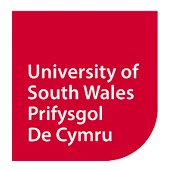Coach’s Blog – Nathan Evans
Preseason is an opportunity to reset and focus on developing players that are both physically and mentally prepared for the forth coming season. As the conditioning coach my responsibility is to combine the coaching demands and philosophy from a physical and tactical perspective, whilst the load placed on players is optimal to enhance their performance and develop robustness. The role enables me to impart what I deliver daily in my work as a Strength and Conditioning lecturer at the University of South Wales.
The preseason provides a window of opportunity to deliver appropriate conditioning and resistance programmes that will tax the players. Our conditioning and resistance programmes are specific to the game of rugby, and we also look to focus on position specific fitness as the demands of the game will differ between forwards and backs, and between the back three and the centres. What we are trying to achieve is conditioning that is specific to the intensity of the game and ideally more so. However, the preseason is not wholly dominated by conditioning, it integrates the need for fitness in hand with technical and tactical work.
To ensure that what we deliver is relevant to rugby, myself (along with several interns from USW) will explore what is happening at the elite level, be it professional or international through speaking with or visiting their sessions. There is growing research in sport and rugby specifically and we spend time reading this. I am also fortunate enough to work with several world class researchers (Dr Morgan Williams and Dr Kate Williams) at USW whose research lies in rugby injuries and prevention.
The work in preseason is focused on overloading the players. What we are looking to achieve is that the players feel that the in-season games place less stress on the body than the preseason work. Resistance training programmes are written for players to undertake away from the rugby/conditioning sessions, these are designed to build the muscles (size and power) and tendons to meet the demands of rugby.
The player’s progression is monitored in different ways. On the field it involves recoding distances covered and time on feet, in the gym it’s a combination of repetitions, sets, and weight lifted. We also look for player feedback and their perceptions of session difficulty. It is not the individual session but rather the accumulative effect of training on the player and team that is important. This long-term approach helps us as coaches to assess the effects of training on each player, but also to assess the squad’s readiness for the season ahead.
As coaches we use sessions to develop behaviours that we want players to display. Behaviours such as resilience, cohesion and mental toughness can be trained. These behaviours can influence success, but the pressure of games as well as training limitations during the season make it difficult to form these behaviours once the season has started. Team bonding is at the heart of developing these behaviours.
As a team of coaches, we will regularly discuss our goals for the differing phases. Preseason is not just one block but rather a series of smaller blocks. Essentially what we are looking to establish is a clear framework for the success of Ponty RFC during the season.
Nathan Evans – Strength and Conditioning Coach
























